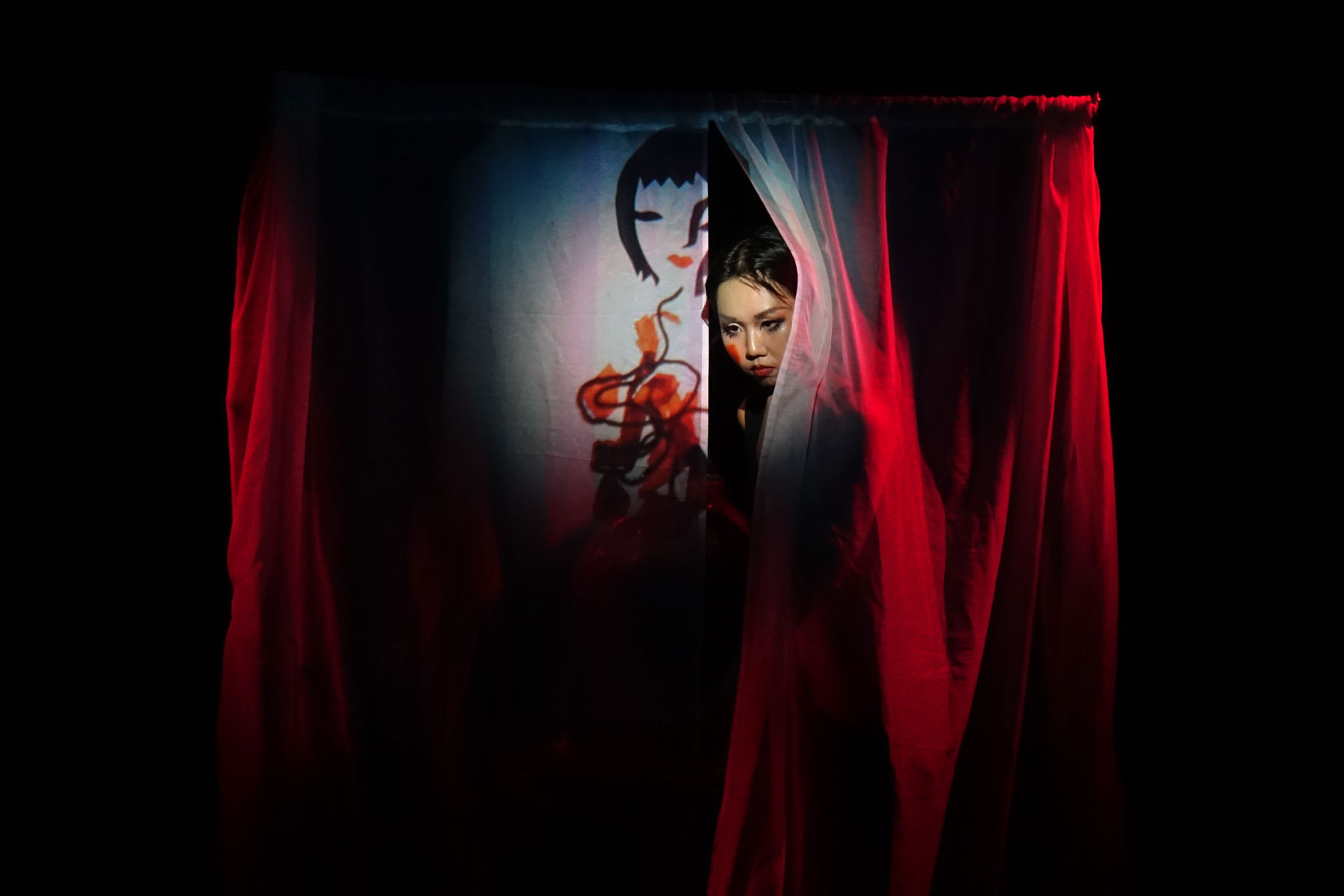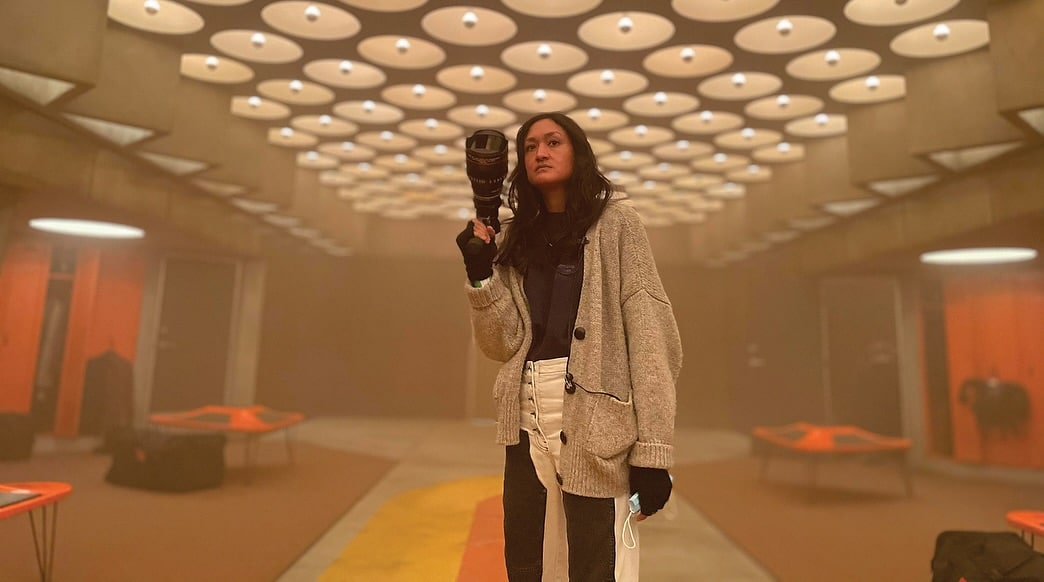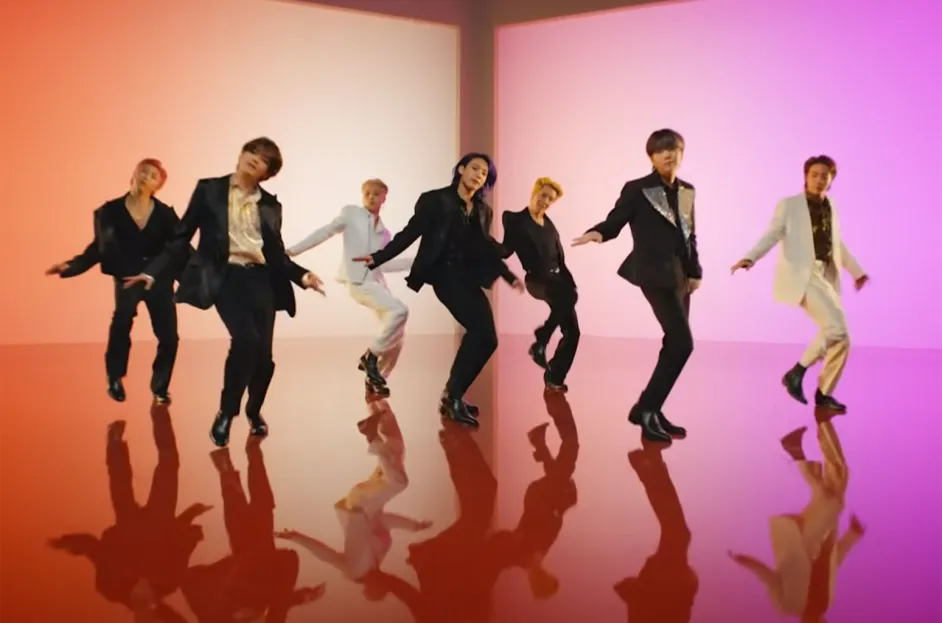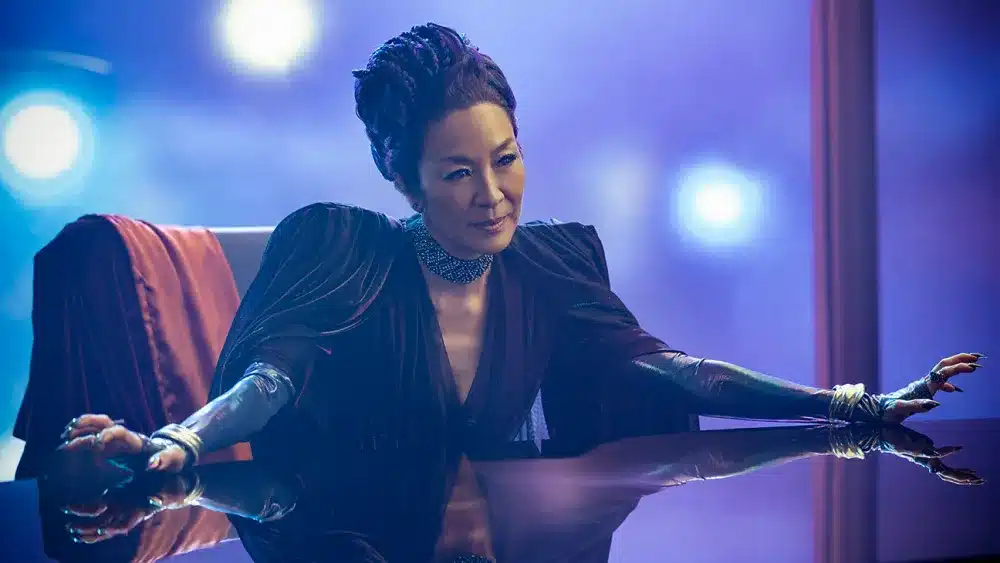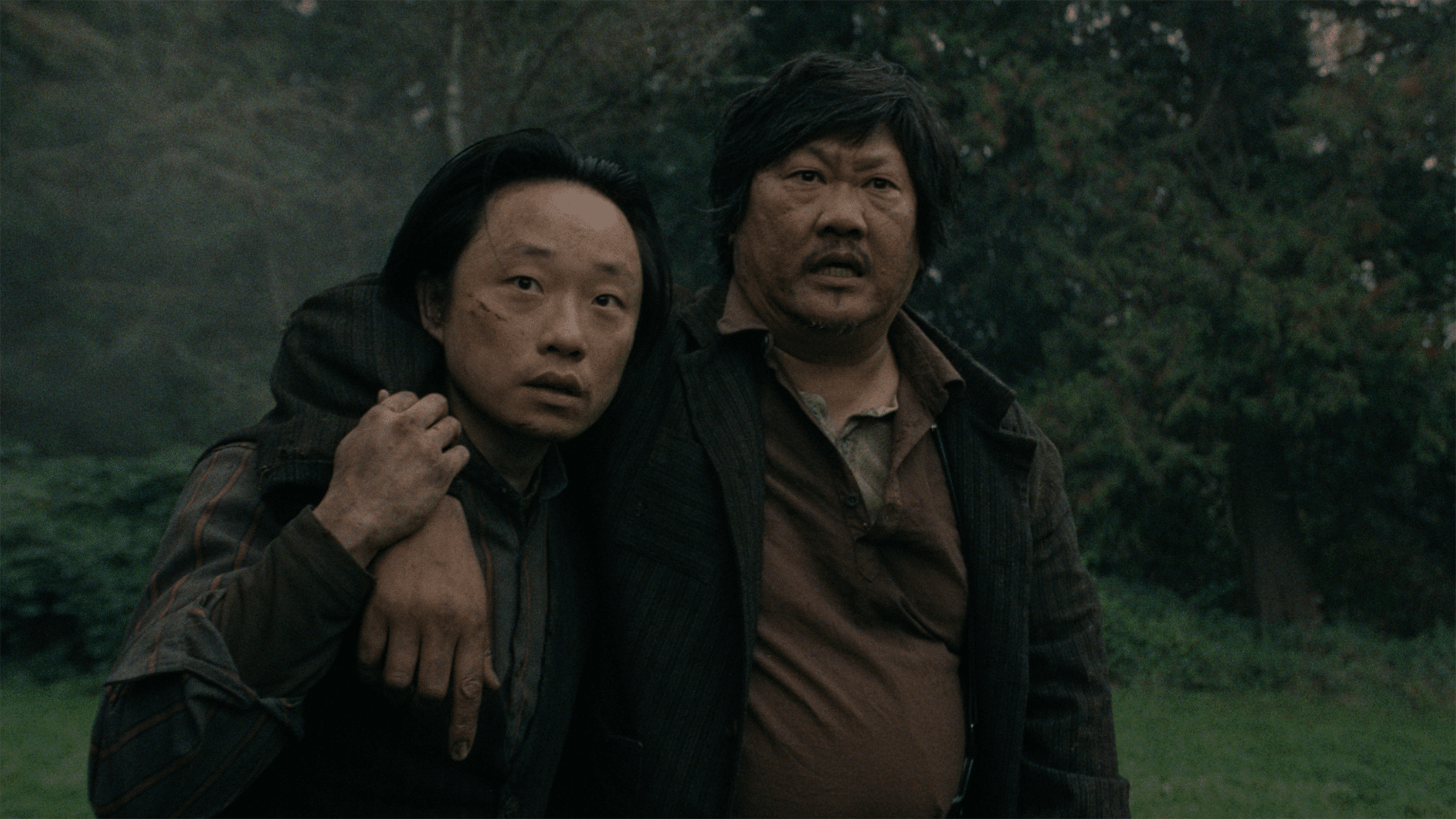A three-hander play that scrutinizes the historical constraints imposed upon women’s bodies and minds, from the agonizing trope of “Mighty Whitey and Mellow Yellow” in colonial times to contemporary microaggressions against migrant women.
Writer and actress Runxuan Yang and director Kang Ting Ho talk to Xindi Wei, a member of Voice ESEA, about Make Way for Rose, which premiered at the Camden Fringe Festival in August this year.
“Being an Asian woman in the West is hard,” said director Kang Ting Ho as we sat in a crowded, noisy Wetherspoon’s in Camden on a Wednesday evening before another performance of Make Way for Rose.
She sighed as she continued, “I kind of want the audience to swing between comfort and discomfort as they watch the play, but in a funny way.”
She wasn’t exactly wrong. As I watched May Kway on stage, played by Runxuan, I certainly felt spooked when I saw May’s head propped up on the neck of a vase on stage. Of course, her body wasn’t inside the vase.
It was an optical illusion, inspired by “The Vase Girl” phenomenon that became popular in towns and villages in China in the 90s. The girl would appear to have been placed in the vase at a young age, with only her head seen floating above it.
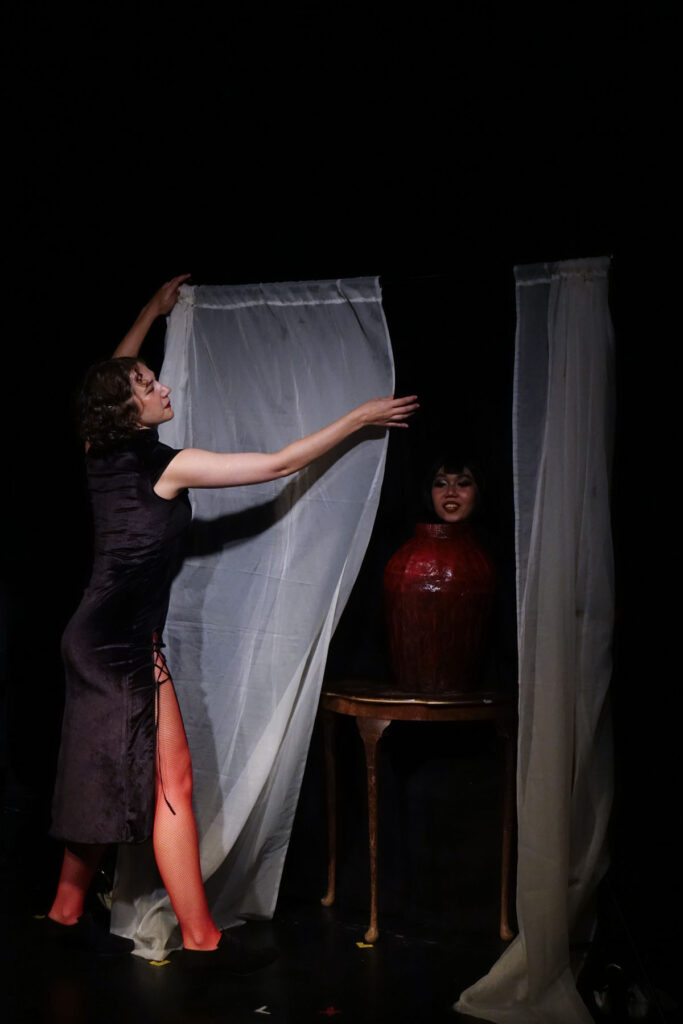
That wasn’t the only thing that made me feel uncomfortable. As she sang ‘Rose, Rose I Love You’ by Yao Lee in Chinese, the assistant, played by a White British girl, asked the audience to feed May sausages while interacting with them in a quite sexual and provocative manner. After repeating the same act three times, a twist occurred, and she suddenly emerged from the vase and sang a rendition of the song in English by Frankie Laine, dressed as a Western man visiting Asian countries.
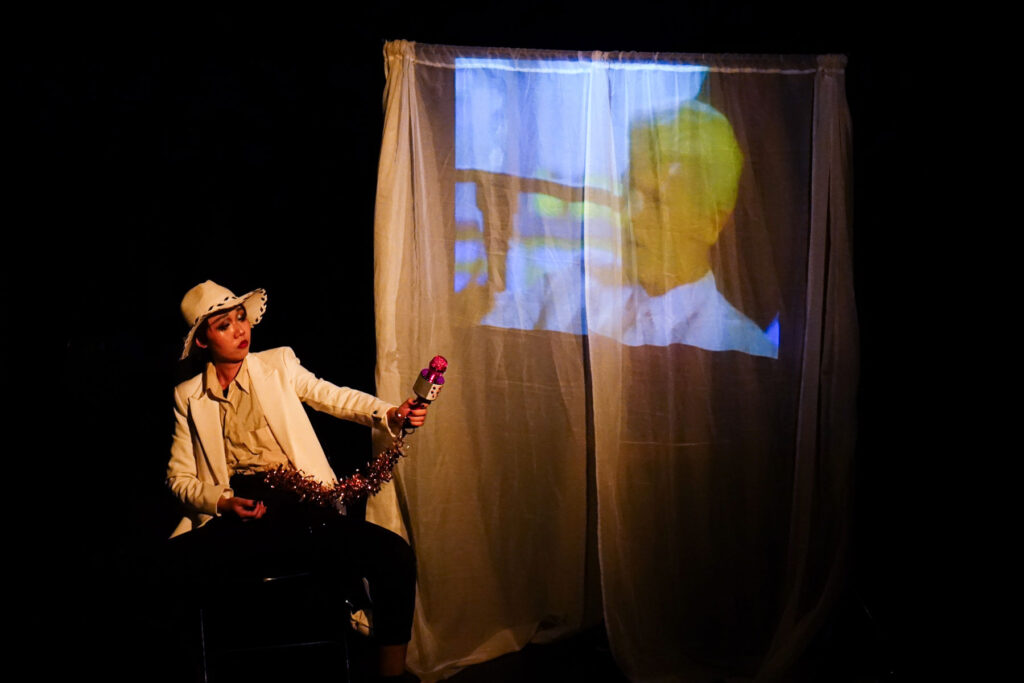
The play consists of a blend of lip-syncing, comedic dialogues, shadow theatre, and grotesque eating, taking the audience on an eerie yet hilarious journey into questions of identity and one’s place in the world.
I was shocked to see such bold acts from an Asian actress, as culturally we are perhaps more demure and shy. But I was equally relieved to see a powerful performance that celebrates female empowerment and defies racial microaggression.
To me, these bold and slightly uncomfortable acts provoke the audience to reflect on the role of art in pushing boundaries and the power dynamics inherent in the act of looking.
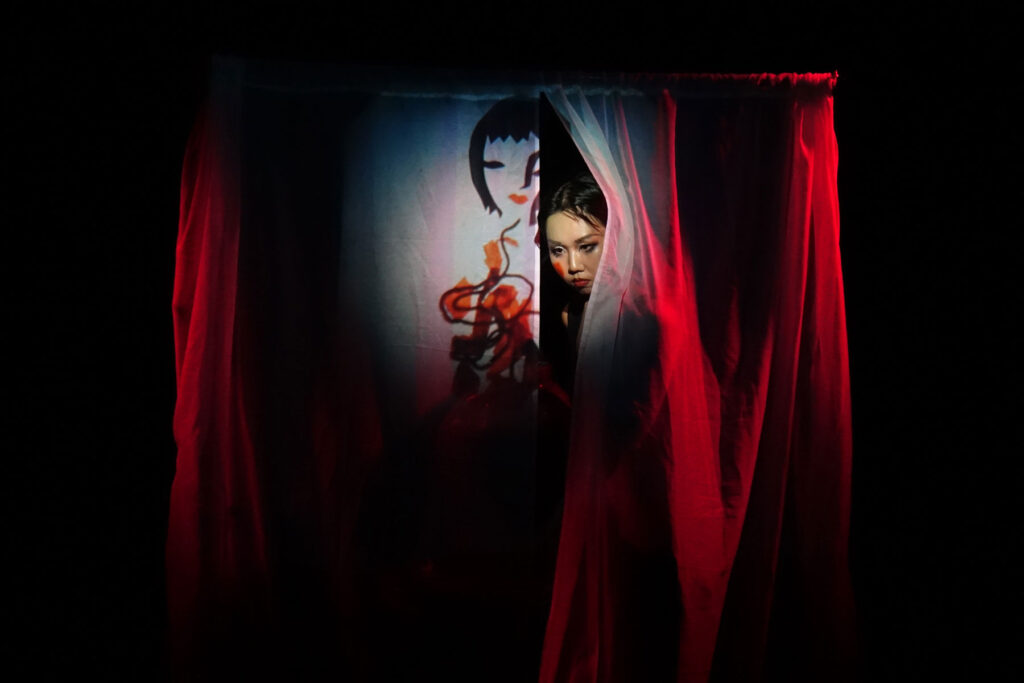
Runxuan first conceived the idea for the play while she was a student at Goldsmiths University in the MA Performance Making program in 2023.
She later worked with director Kang Ting Ho to develop the play into a 60-minute show that questions the exotic female trope and explores the startling parallels between the male and the Orientalist gaze.
Runxuan said, “We just want to present what happens and let the audience see it. Being a migrant woman in a foreign country is hard. People project things onto you.”
Sarah Thorogood, who played the British assistant, said, “It is important to have audiences from England reflect on how they might behave in cross-cultural contexts.”
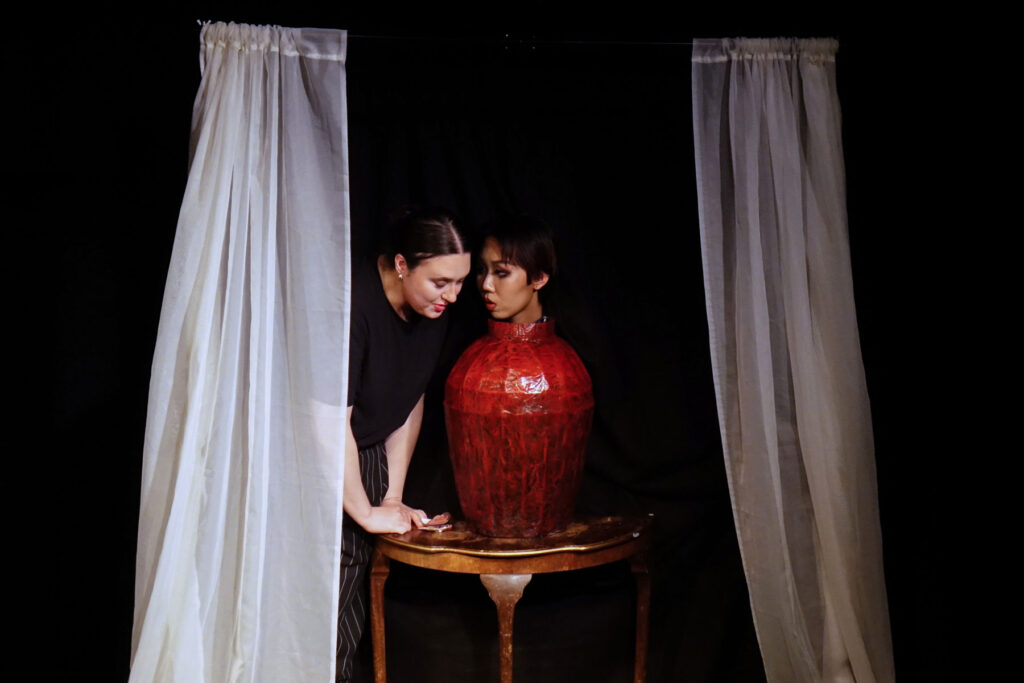
When asked about the representation of Asian casts on the UK stage, Runxuan said, “I think I was always very interested and excited to see Asian productions in the UK. I think also because of political situations, a lot of these stories are not allowed to be told or addressed in their own countries.”

